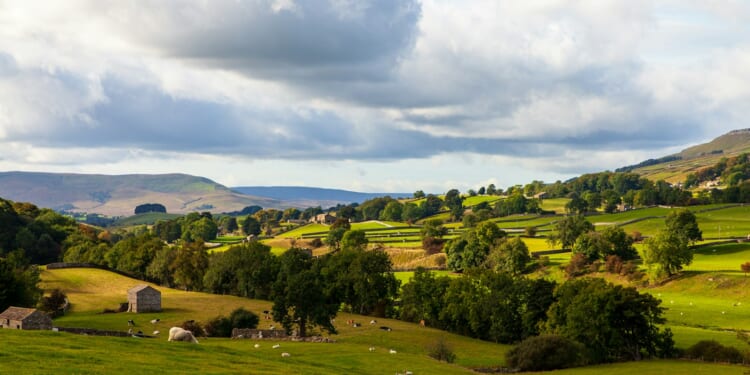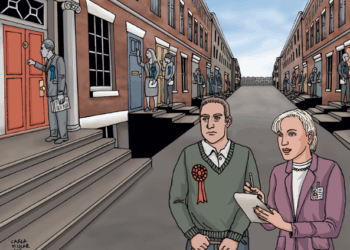Josh Moreton is co-founding Partner at Walk Through Walls and a former CCHQ campaign manager.
The Conservative Party has always relied on the loyalty of rural Britain. Farmers, landowners and village communities have been part of the Party’s backbone for generations. But in 2024, Reform UK showed just how fragile that loyalty has become.
Across swathes of the countryside, voters turned away from the Conservatives – not because they suddenly trusted Labour, but because they felt Westminster had stopped listening. If the Party does not move quickly to re-earn their faith, Reform and Lib Dems will dig in deeper.
It would be naive to ignore the elephant in the room.
Reform’s rise has been fuelled above all by immigration. The party has used simple, direct messages to capture frustrations that many Conservatives have struggled to answer with clarity or credibility. But even if we put that issue aside, the fact remains that Reform is finding traction in the countryside because rural voters feel invisible. Their anger is not just about borders – it is also about broadband, buses and the basic sense that Westminster no longer sees them.
Levelling up, the flagship Conservative promise, is a case in point. Too often, it has been framed in terms of city-centre regeneration, transport schemes and high-profile infrastructure projects that ministers can point to on the evening news. Rural Britain barely features in the conversation, despite being central to the food we eat, the energy we consume and the communities that bind the country together. That gap is more than policy neglect. It is an opening for Reform to present itself as the only party that speaks plainly for the countryside.
Rural needs are distinct, and they cannot be treated as an afterthought. Farmers are still waiting for clarity on subsidy reforms. Villages face spiralling housing costs that push out young families. Broadband and mobile coverage remain patchy, leaving rural firms struggling to compete in a digital economy. Buses, GPs and schools are thinning out, fuelling a sense that services are being stripped away while taxes keep rising. Each frustration may seem small in Westminster, but taken together they feed a sense of invisibility and it is into that vacuum that Reform has stepped.
The Conservatives must remember that while rural voters value tradition, they also expect competence. Farming families do not demand handouts, but they do expect clear rules and fair treatment. Parents do not ask for special favours, but they want their children to have the same chance to thrive as those in cities. Pensioners do not dream of grand projects, but they do need a bus service that actually arrives. Meeting those expectations is not about big spending, but about proving the Party still understands rural life.
The risk for the Conservatives is assuming that rural voters “have nowhere else to go.” That assumption no longer holds. Reform has found fertile ground precisely because it tells countryside voters what they already feel: that the establishment takes them for granted. Lib Dem candidates, too, are beginning to win trust by speaking directly to local concerns. The message is clear – if the Conservatives want to keep Reform at bay, they must give people a reason to stay loyal.
At its heart, conservatism is about responsibility, stability and community. No part of Britain embodies those values more than the countryside. Farmers are stewards of the land, safeguarding it for future generations. Village life, often caricatured as old-fashioned, in fact, represents some of the strongest civic bonds in the nation. Food, energy and environmental stewardship all flow from rural areas into the prosperity of the country as a whole. Conservatives should be championing these contributions as proof of what their philosophy means in practice.
Levelling up must be redefined so that it resonates at the end of a farm track as much as it does in a city square. That means visible improvements to rural infrastructure, clarity in farm policy, fair treatment in housing and planning, and recognition that food security is as strategic as energy or defence.
It is not charity to deliver these things. It is political common sense.
Reform’s appeal may be sharpest on immigration, but its foothold in the countryside comes from something deeper: the feeling of neglect. If Conservatives want to keep Reform at bay, they cannot only debate borders. They must prove, with deeds not words, that rural Britain still matters.










![Donald Trump Slams Chicago Leaders After Train Attack Leaves Woman Critically Burned [WATCH]](https://www.right2024.com/wp-content/uploads/2025/11/Trump-Torches-Powell-at-Investment-Forum-Presses-Scott-Bessent-to-350x250.jpg)
![Keith Ellison Caught Promising to Fight State Agencies for Somali Fraudsters [WATCH]](https://www.right2024.com/wp-content/uploads/2026/01/Keith-Ellison-Caught-Promising-to-Fight-State-Agencies-for-Somali-350x250.jpg)





